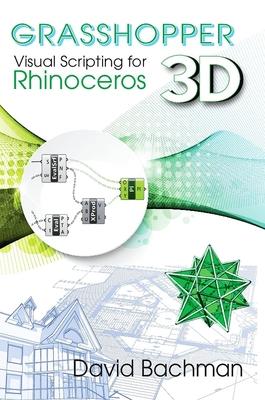We live in a three-dimensional world. To design objects for everyday living, users must learn how to create in three dimensions. For precise modern designs that must conform to specific tolerances, we use computers to create a digital model first, and then pass that model on to a machine, such as a CNC router or 3D printer for fabrication.
There are many software packages that are used to create digital models. One such package that is popular for industrial, product, and graphic design and architecture is Rhinoceros 3D, or "Rhino." Grasshopper is a visual scripting platform for Rhino. With it, the user can build precise, customizable Rhino objects by simply dragging boxes around the screen and connecting them with virtual "wires." No knowledge of programming is necessary!
This work provides an introduction to modeling objects with Grasshopper. Through a series of examples and tutorials, readers will learn how to build complex objects by combining simple components. Applications include both NURBS surface modeling and mesh manipulation techniques.
In Part I, Bachman offers a brief overview of scripting with Grasshopper, with simple examples used to introduce the reader to the most common Grasshopper components. In Part II, more complicated Grasshopper scripts are presented, showcasing the variety of objects readers can create. These examples were carefully chosen so that readers can see how the concepts from Part I can be put together to create increasingly complex designs. Finally, Part III features a reference guide from Grasshopper's own help files containing descriptions of some of the most common Grasshopper components.
